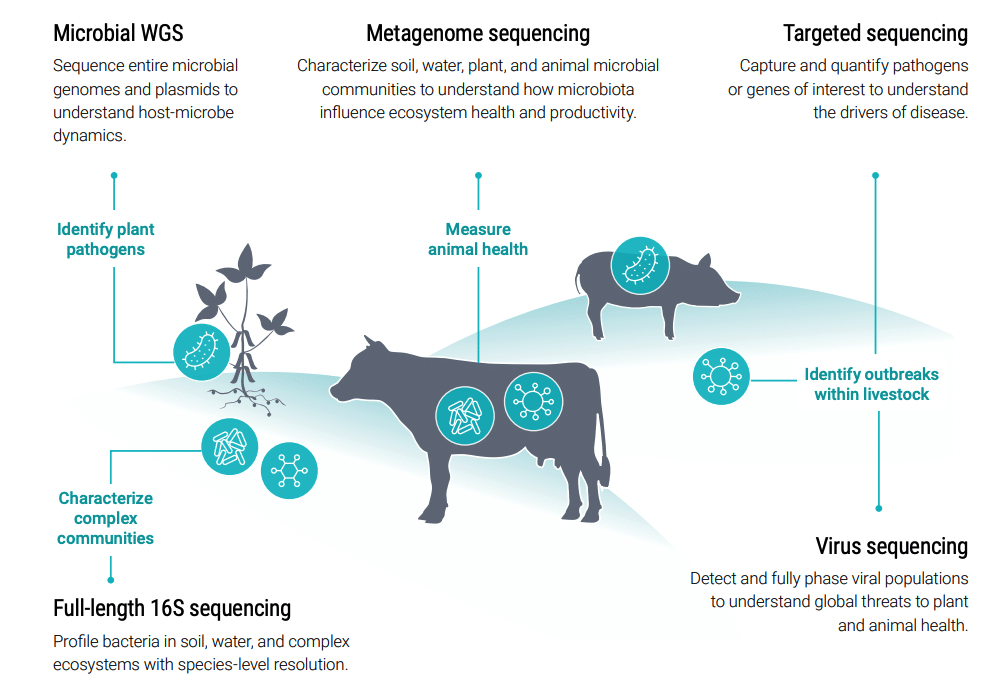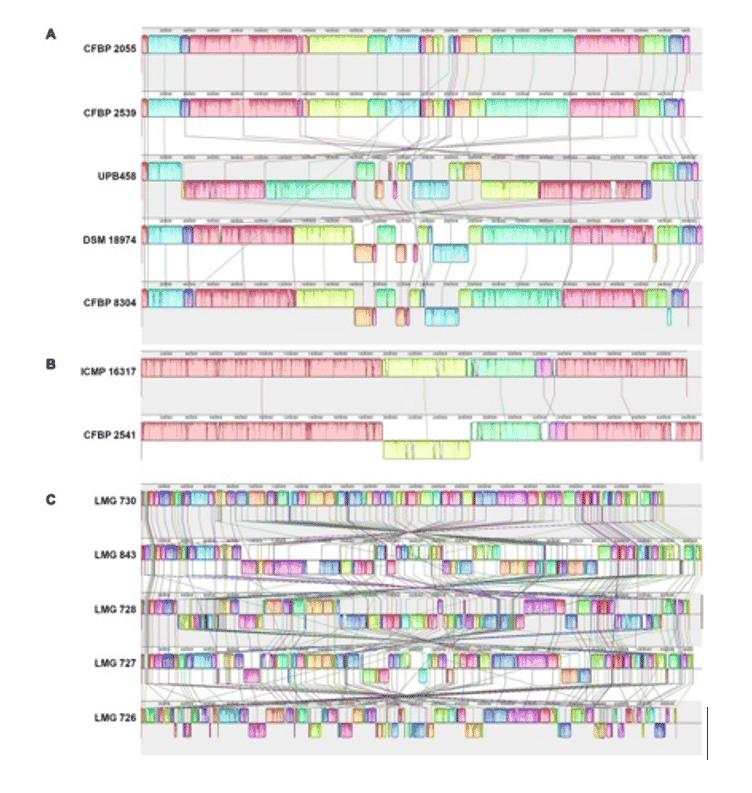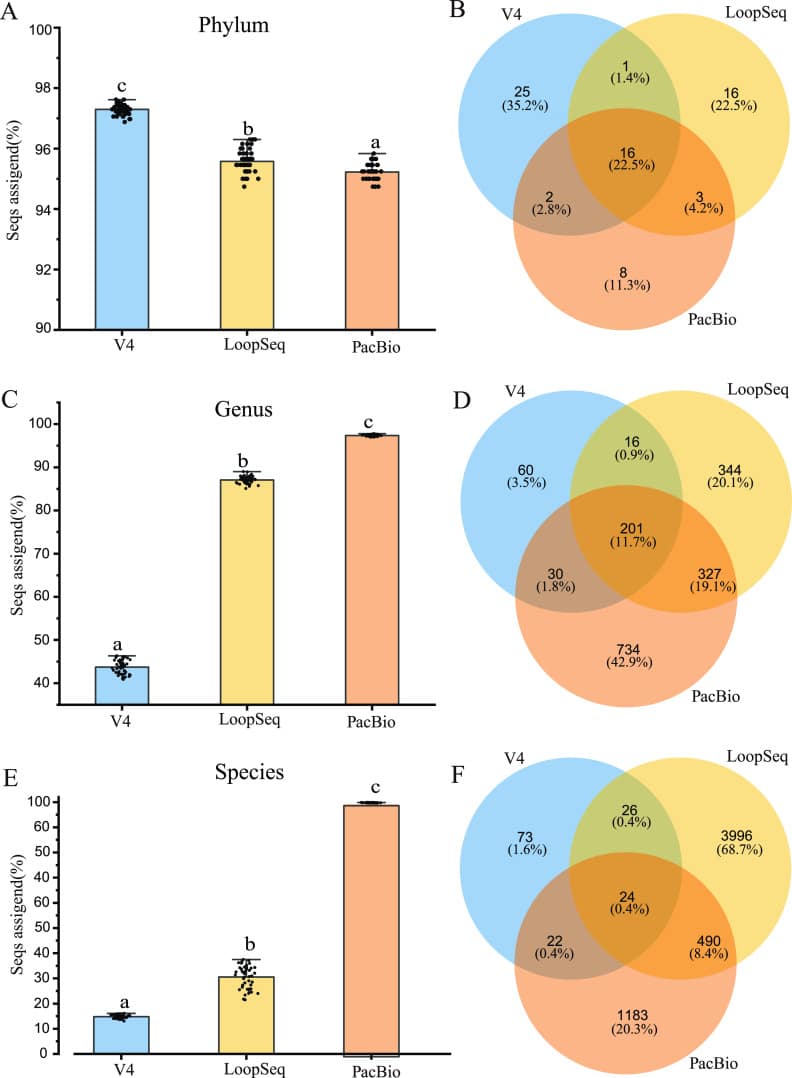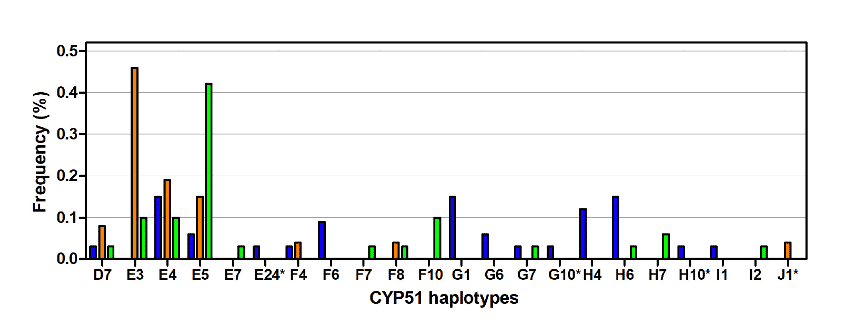Break through the unknown
Single Molecule, Real-Time (SMRT) sequencing delivers a complete view of the microbiota impacting plant and animal health, growth, and production. The PacBio systems enable scientists to:
- Generate complete genome assemblies to understand the mechanisms underlying virulence, drug resistance, and immune escape
- Use microbial epigenetics to understand how methylation impacts critical traits including host-adaptation and competition
- Understand global threats to plant and animal health by resolving viral populations
- Characterize soil, water, plant and animal microbial communities to understand how phytobiomes influence ecosystem health and productivity
Learn how other scientists have used SMRT sequencing to understand how microbes impact plant and animal health:
- Agrigenomics for pest and disease research
- SMRT sequencing to help reveal secrets of the soil in understudied Southeast Asian rainforests
- A TAL tale: PacBio sequencing helps unravel mechanisms of plant infection
- For metagenomic studies, HiFi reads deliver higher-quality data
- The HiFi sequencing advantage for metagenome assembly
Flyer
EXPLORE PLANT + ANIMAL MICROBIOLOGY IN HIGH RESOLUTION
Improve crop yields, advance livestock health, and preserve biodiversity with a more complete view of plant and animal microbiology. Bacteria, viruses, and fungi have critical influences on the health of plants, animals, and ecosystems. Study microbes, microbiomes, and phytobiomes in high resolution with HiFi sequencing.
Spotlight
A NEW RESOURCE FOR COMPARATIVE GENOMICS OF EFFECTOR-RICH PATHOGENS
A tour de force comparative genomics study of 11 closed PacBio Xanthomonas translucens genomes is an impressive new resource for studying pathogenicity, virulence, and host adaptation in a pathogen that causes widespread damage to cereals and forage grasses.
Goettelmann, F., et. al. (2022). Complete genome assemblies of all Xanthomonas translucens pathotype strains reveal three genetically distinct clades. Front Microbiol, 12. doi: 10.3389/fmicb.2021.817815
Spotlight
A SPECIES-LEVEL VIEW OF PHYTOBIOMES WITH PACBIO FULL-LENGTH 16S
Waterlogging has a significant impact on the rhizosphere metagenome, enriching microorganisms related to phosphorus cycling, such as Flavisolibacter and Massilia. In this study, PacBio full-length 16S data provided better resolution than both short and synthetic long reads, yielding the highest proportion of assigned sequences at both the genus and species level.
Yu, T. et al., 2022. Effects of waterlogging on soybean rhizosphere bacterial community using V4, LoopSeq, and PacBio 16S rRNA sequence. Microbiology Spectrum, 10(1), e0201121.
Spotlight
A HAPLOTYPE-RESOLVED ASSAY FOR FUNGICIDE RESISTANCE SURVEILLANCE
As winter wheat blight is increasingly treated with targeted fungicides, full-length sequencing of the targeted genes is an appealing strategy for detecting resistance. A new multiplex PCR assay paired with HiFi sequencing enables fully haplotyped, high throughput surveillance for emerging resistance to azole, SDHI, and Qol fungicides while simultaneously genotyping Z. tritici strains.
Samils, et. al. (2021) Development of a PacBio long-read sequencing assay for high throughput detection of fungicide resistance in Zymoseptoria tritici. Frontiers in Microbiol, 18. doi: 10.3389/fmicb.2021.692845.



